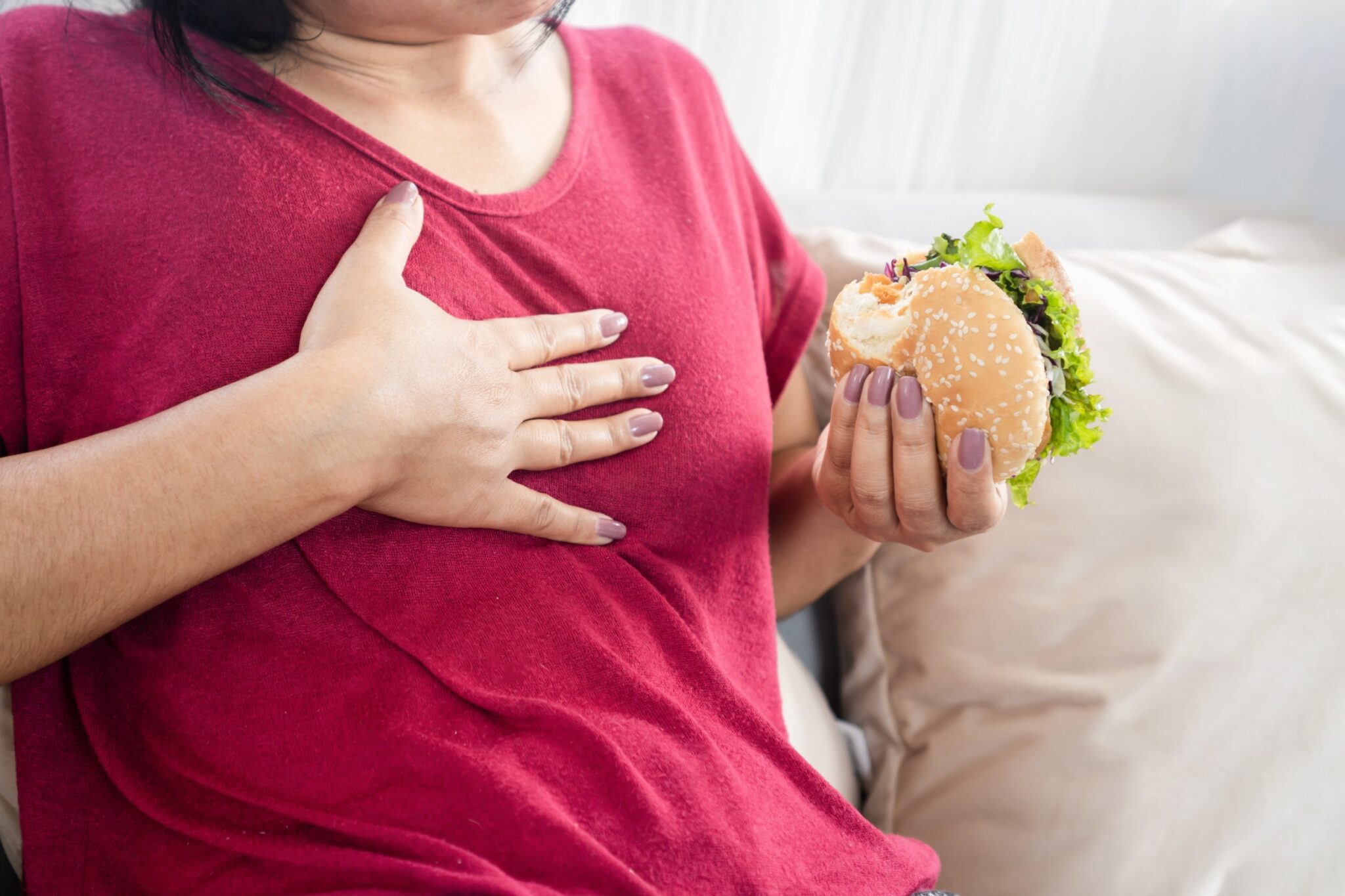
by Ahsan Bhatti, MD
Acid reflux is an uncomfortable condition that results in stomach acid making its way back up into the esophageal canal. The end of your esophageal passage is home to more sensitive tissue than you’ll find in the stomach, and your potent stomach acid can irritate or damage these tissues if you experience acid reflux.
Acid reflux isn’t always caused by the foods you consume or your eating habits. For example, excess stomach acid production and a weakened esophageal sphincter can both contribute to acid reflux, but for many individuals, what they eat can play a role in an acid reflux attack. In today’s blog, we take a closer look at five foods and eating habits that can increase your risk of experiencing acid reflux.
Acid Reflux Trigger Foods
What and how we eat can certainly increase our risk of experiencing an acid reflux flareup. Here’s a look at some foods and eating habits that can sometimes trigger acid reflux onset.
- Fatty Foods – Foods that are high in fat are one of the most common causes of acid reflux. For starters, high-fat foods take longer to digest, and if they stay in your stomach longer, there’s more opportunity for stomach acid that is attempting to break down the food to end up back in the esophageal canal. High-fat foods can also trigger the release of a hormone called cholecystokinin, which can cause the esophageal sphincter to relax, which will make it harder to keep stomach acid out.
- Spicy Foods – Many people believe that spicy foods are harder to digest and in turn can lead to acid reflux, but that theory really hasn’t been proven. However, many spicy foods contain the chemical capsaicin, which has been shown to reduce digestion speed. As we mentioned above, the longer foods take to be digested, the greater the chance stomach acid can end up in the esophageal canal.
- Alcohol – Alcoholic beverages can increase your likelihood of experiencing acid reflux. Alcohol can lead to esophageal sphincter weakening or increased production of stomach acid, which can both increase your risk of acid reflux. Alcohol can also lead to burping, which can make it easier for stomach acid to make its way back up the esophageal canal
- Overeating – Consuming an excessive amount of food, even if you’re eating healthy options, can increase your likelihood of suffering from acid reflux. Bigger meals take longer to digest and will trigger more stomach acid production. Both of these factors make you much more likely to suffer from acid reflux.
- Citrus – Citrus fruits contain a large amount of citric acid, and when they make their way into your digestive system, it can trigger excess stomach acid production. Citrus foods that stimulate stomach acid production won’t always lead to symptoms, but if you find that you’re oftentimes experiencing acid reflux after eating citrus fruits or drinking orange juice, consider adjusting your citrus consumption habits.
The good news is that acid reflux that is triggered by food choices or eating habits can oftentimes easily be treated by making some small dietary adjustments. You can try to make these adjustments on your own, or you can connect with a specialist like Dr. Bhatti to ensure that your treatment has the best chance of success. For more information about trigger foods or acid reflux, reach out to the team at Bhatti Surgery today at (952) 368-3800.
